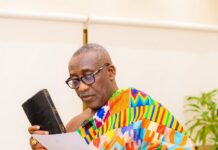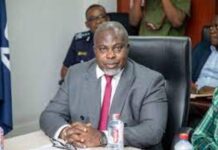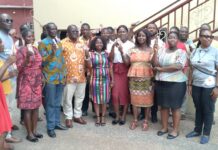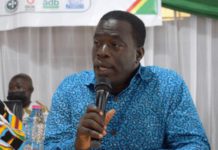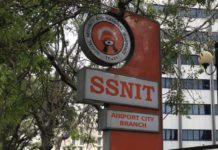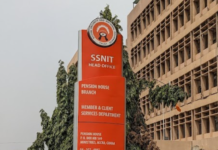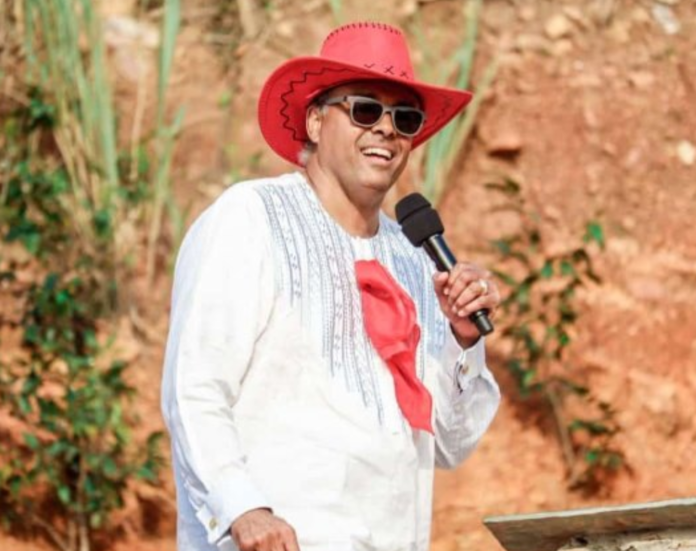
The Social Security and National Insurance Trust (SSNIT) has launched investigations into complaints against the Lighthouse Chapel International (LCI) following the church’s failure to pay the pension contributions of six pastors who have resigned from the church.
The six former employees have also sued the church for failing to pay their mandatory pension contributions and abuses they say they suffered while they worked in there.
Before filing their case in court, the six had petitioned the head of prosecutions at SSNIT in a letter dated February 1, 2021, over the LCI’s failure to adhere to “basic” labour regulations.
While four of them had parts of their contributions paid, two of them did not have even one month of their SSNIT contribution paid. In fact, two of the pastors did not even have SSNIT numbers.
All the six say their employer did not pay their tier-two pension contribution, which is also mandatory, according to Section 63 of the National Pensions Act.

In a three-page letter to Lighthouse, sighted by The Fourth Estate, SSNIT said its preliminary investigations had confirmed that Lighthouse Chapel International was required to respect the law mandating employers to pay pension contributions for their workers.
“The LCI is an organization registered under Act 766 hence had a responsibility and obligation under the law to ensure that all workers were registered and contributions paid on their behalf at all times, whether they were in Ghana or outside the country,” part of the letter, dated May 5, 2021, said.
Before the case got to SSNIT, some of the affected pastors had tried to resolve the issues outside the attention of pension regulators. Bishop Larry Odonkor had engaged a labour consulting firm, Gamey and Gamey, to get the church to correct what he initially thought was an anomaly caused by oversight.
The CEO of the firm, Austin Gamey, spoke to a senior official of the church, who reportedly assured Mr Gamey of getting back to him but never did. Other senior officials of the church were contacted but those attempts at resolving the matter proved fruitless.
Mr Gamey told The Fourth Estate that resolving the issue out of the earshot of a judge is always preferable. To him, sitting down for diplomacy is always better than standing in a docket for prosecution.
After a month of running into brick walls over his client’s concerns about his pension, Mr Gamey wrote officially to the church, notifying the leadership of a potentially criminal failure in the non-payment of social security contributions.
MORE:
Failure to pay pension is a criminal offence that has landed many individuals and organisations in trouble. In 2013, for instance, a former presidential candidate of the Convention People’s Party (CPP), George Opesika Aggudey, was jailed for the non-payment of pension contributions for his workers.
The letter Mr Gamey wrote to Lighthouse in July 2020, asked for a response within two weeks. It carried the usually mundane but veiled threat of “exercising our legal options.”
The church did respond, but it was after two clear months to a letter that had given the church a two-week ultimatum. Like the stonewalls of a lighthouse, the Lighthouse Chapel International remained unmoved by the threat.
The church said in its reply dated September 29, 2020, that it did not owe Bishop Larry Odonkor any social security contributions beyond five out of his nearly 18 years of service.
Larry Odonkor and five other former ministers of the gospel who had also resigned decided to escalate the matter.
“We had hoped it wouldn’t come to this,” Larry Odonkor said, “but we are prepared to fight for what is due us.”
They reported the church to SSNIT, which has begun its investigations and written to the church for a response.

In the case of Larry Odonkor, the church had said in its response to Austin Gamey’s letter that it did not pay his pension contribution for the period in contention because he had worked for the church either a volunteer or in the Lighthouse Chapel International branches outside Ghana and the church was not obliged to pay his SSNIT contributions.
“The Lighthouse Chapel International Ghana is legally, financially, administratively, and governmentally independent organisation from other LCI ministries outside the borders of Ghana and only shares a spiritual relationship with the others,” the church said in the letter signed by its Human Resource Director, Mrs. Rebecca Addae.
But SSNIT has responded to the church’s claim of volunteerism, saying the church had an obligation to pay SSNIT contribution because “an employer and employee relationship had been established between the pastors and LCI, taking into consideration all the factors and circumstances relating to their engagement and the conduct of that relationship.”
The SSNIT letter listed a number of factors that the national pension body said confirmed that the pastors were entitled to the payment of their pension contributions.
The reasons include the fact that the church “decided when and where a pastor should be moved to at any point in time and took all decisions as an employer in the regulation of the activities of the pastors.”
“These pastors provided regular reports on every income and expenditure to the finance office in Accra in a format provided by the head office,” SSNIT said. “The leave days of the pastors were also scheduled by the Human Resource office of the LCI.”
In its letter to LCI, SSNIT has asked the church for a contributions report, which should state the salaries and SSNIT numbers of the affected pastors.
“This will afford us the opportunity to generate the respective outstanding indebtedness of social security contributions and any penalty thereof,” the letter ended.
While investigations are ongoing, the six former employees have also sued the church for “abuse and exploitation” they suffered when they laid halted their professions and took up a calling in full-time Christian ministry.
The case is yet to be heard at the Accra High Court.


